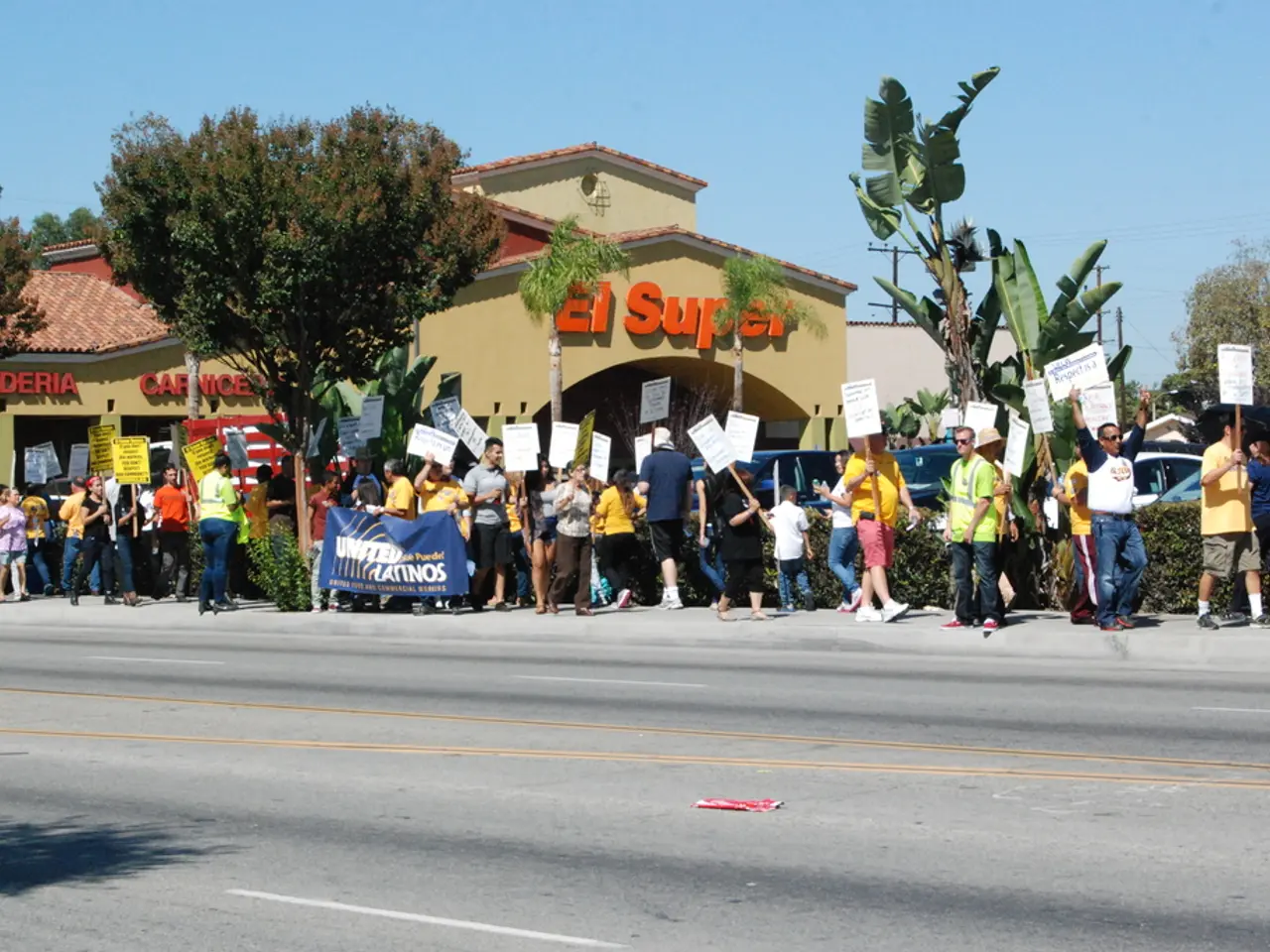Socialist Party experiences intense surprise and unsettling; repeated expressions of shock echo among party members.
German Coalition Crisis Deepens Over Constitutional Court Nominee
The German coalition government, led by Chancellor Friedrich Merz, is facing a significant crisis following the withdrawal of the SPD's candidate for the Federal Constitutional Court (BVerfG), Frauke Brosius-Gersdorf. The controversy surrounding her nomination has highlighted the delicate balance within the coalition and raised questions about the politicization of the judicial appointment process.
Brosius-Gersdorf's political stances, including her support for liberalizing abortion laws, mandatory vaccinations, opposing bans on headscarves for public officials, and backing a potential prohibition of the far-right AfD, sparked strong opposition, notably from the CDU and AfD. This opposition led to a deadlock, with the parliamentary vote to elect the judges being postponed from its planned date.
The SPD initially supported Brosius-Gersdorf but the mounting discord and accusations of a breach of trust within the coalition led to her ultimately withdrawing her candidacy to preserve coalition consensus. The judicial appointment issue remains unresolved and is expected to continue beyond the summer parliamentary recess, casting a shadow over the government’s achievements in its early months.
The crisis goes beyond ideological differences, showing a growing politicization of the judicial appointment process, which had traditionally involved behind-the-scenes consensus to preserve the Court’s authority and neutrality. This timing and public dispute are unusual and have complicated intra-coalition relations, affecting Chancellor Merz’s administration, already under pressure from other political challenges.
Union faction leader Jens Spahn has called for reconciliation, stating that the Union is open to discussing the new candidate's nomination. Chancellor Merz has also called for a swift resolution to the crisis, emphasizing the need for the coalition to function effectively. The SPD, on the other hand, has accused the Union of running a "dirty campaign" and has denied allegations of plagiarism against its new candidate, if any.
The German public is closely watching the developments within the coalition, with the crisis serving as a reminder of the delicate balance needed to maintain a functioning government. The SPD is under pressure to find a candidate who can gain the support of the Union, but the identity of the new nominee has not yet been disclosed.
In the wake of this crisis, the coalition is currently under scrutiny, with many questioning whether it can weather this storm and continue to function effectively. The crisis has highlighted the importance of maintaining a balance between ideological differences and the need for consensus in a coalition government.
[1] The Local
[2] Deutsche Welle
[3] Reuters
[4] BBC News
- The ongoing German coalition crisis, rooted in the politicization of the judicial appointment process, has its impact extending beyond the Federal Constitutional Court nominee to encompass broader aspects of policy-and-legislation, politics, and general-news, as reported by various media outlets such as The Local, Deutsche Welle, Reuters, and BBC News.
- Amidst the German coalition crisis, there is a growing emphasis on the need for a balanced approach towards war-and-conflicts, politics, and policy-and-legislation as the country navigates through external pressures and internal discord, making headlines in journals and online publications such as The Local, Deutsche Welle, Reuters, and BBC News.






